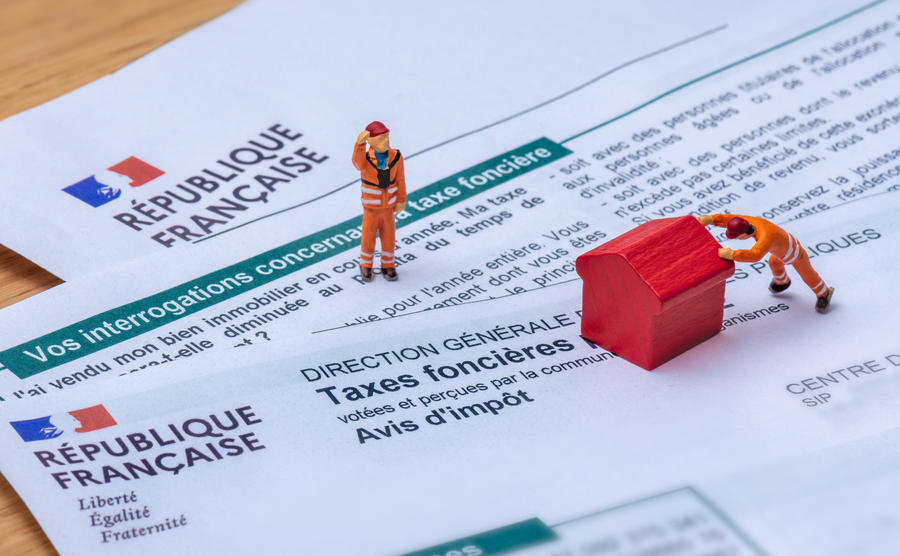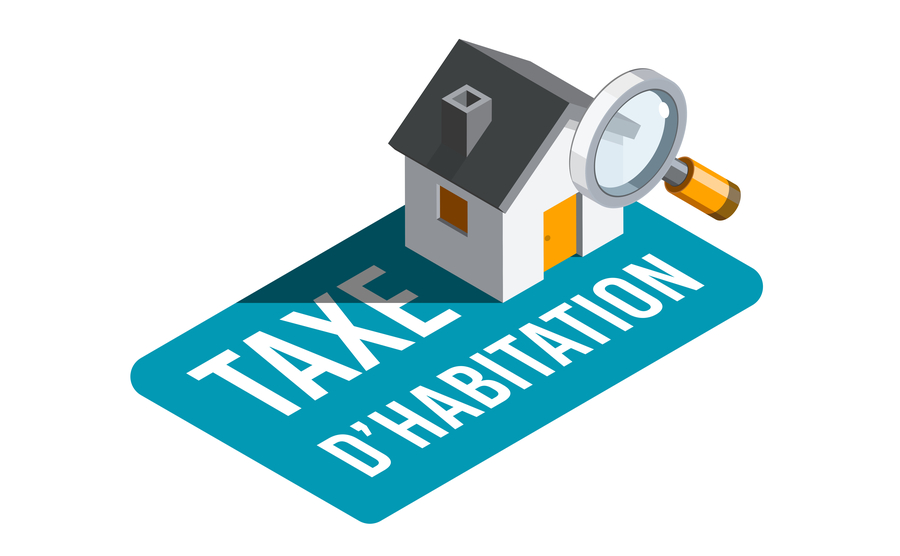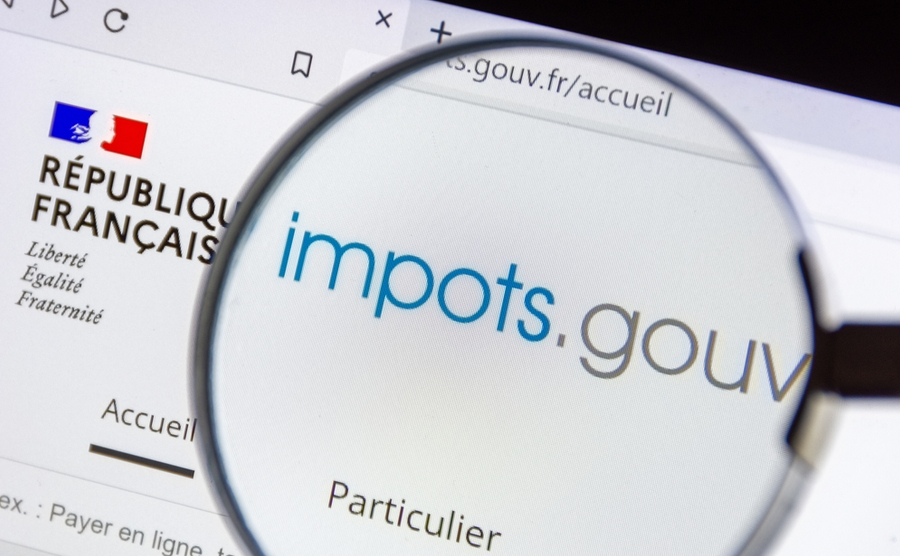One of the trickiest things to navigate following relocation as a new resident, is taxes in France. Particularly for those previously employed back in the UK who intend to start their own businesses here. As many do. Here, we explain the various taxes in France that you need to be aware of as a result of your new life.
Taxes in France can admittedly feel overwhelming to navigate on first glance. The important thing is awareness of everything you need to tackle and ensuring you adhere to all the rules of your residency. Because once accomplished, half the battle is won. Taxes in France cover many different areas from personal tax, to property tax and additional business taxes.

French property tax notice I Image: HJBC via Shutterstock
Personal Taxes in France
Personal taxes in France fall into 3 main groups. French income tax (impot sur le revenu), social security contributions (known as cotisations sociales or charges sociales) and tax on goods and services (TVA). TVA in France is calculated at a base rate of 20%. Although some professionals need not charge VAT as their income doesn’t exceed the threshold required to apply TVA.
When fiscally resident in France, you are legally bound to submit a personal income tax declaration (known as “Impôt sur le revenue”). This is required for all individuals, whether retired, unemployed, salaried or self- employed. In the UK, your employer does this on your behalf then pays you post deductions. This applies unilaterally to both French Nationals and overseas residents alike without exception.
Find homes in France via our property portal.

Income taxes in France are assessed on your total household income
Income Taxes in France
This tax regularises your personal financial situation based on the income of your household as a whole. Also, on the basis of your total worldwide income. It is worth noting, that even if you’re not a resident in France, you could be subject to this obligation. Look into this if you have any income originating from France, and according to double tax treaty agreement rules of your home country and France. It’s imperative to investigate this as if you rent property in France, as you may well be liable.
Tax offices allow online declarations as well as face-to-face enquiries around early April. Tax declarations are finalised and submitted on various deadlines dates ranging from May to June, depending on where you live and whether you are declaring on paper or online. First declarations are normally on paper (forms available from your local tax office) with subsequent declarations facilitated online. Tax declaration dates are clearly published online every year and you need to pay attention to them. The French tax year runs from January to December, unlike the UK. So declarations in May cover all revenue of the previous year up until 31st December.
As well as income, it is imperative to note that all overseas residents are also legally bound to declare any and all overseas accounts. If you don’t, the risk of fines are very high which many people find out too late and later regret not researching in advance of their move.
For more information on taxes in France, please visit impots.gouv.fr

Social service contributions fund healthcare among other services
Social security contributions
Social security contributions are referred to as taxes by many. They are social charges are used to finance the social security system. These payments are made in parallel to the general taxation system. This means that the self-employed pay a fixed proportion of their earnings through this system. This contribution pays towards healthcare, pensions etc. However, in France, unlike some other countries, they are in fact, in most cases tax deductible.
For many used to receiving pay packets in the UK where these fees are already deducted, this can be difficult to get used to. It means that a certain proportion of the amount you invoice clients for, must be paid back into the system. So, services charged out must take this into account. Percentages of earnings due, depend on the legal and tax status (activity) of your business. Normally ranging from 12% to 22%.
There are two other contributions payable for the self-employed. “Contribution Fonciere des Entreprises” (CFE), charged according to the physical space required to provide your services. Even if within your own home. As standard this is payable from your second year in business. Although in some areas, an exemption can be granted for the first 5 years. Also, “Contribution à la formation professionnelle” (CFP). A levy which entitles you to professional training.
Retired people reaching the official age of retirement and covered by an S1 health certificate from the UK are not usually liable for social security contributions and charges on their pension income. However if you have retired early, you will be assessed and there may well still be some liability for social charges.

Chateau for sale in Périgueux, Aquitaine
Property Taxes in France – Taxe foncière
“Taxe foncière” is an annual property tax, payable in October each year. This tax is applied to anyone owning a property in France. It is payable by whoever owns the property on 1st January of that year, whether they live in the property themselves or not. It applies to all property. Whether residential, commercial or industrial.
This tax is calculated on the location of your property, the size and condition of the property, as well as land attached to it. In essence, on the rental value that the property may be expected to fetch in an open market. This can vary widely from area to area. It is often more expensive in towns than in rural areas. The amount is dictated by local councils. The money generated from this tax is spent on local services within both the commune and department.
The first demand must be paid in full (often up to nearly a year after purchase). However, it is worth noting that by speaking with your local tax office, this charge can be thereafter paid monthly via direct debit. Incurring no additional interest charges. Useful information for those on a budget.

Tax d’Habitation = property taxes
Property Taxes in France – Taxe d’Habitation
Taxe d’Habitation is an annual residence tax. Payable by whoever is physically living within that property as of 1st January. If occupying your own property, historically you were liable for this tax. If you rent out your property, then it is the occupier who is liable. It is important to note that since 2018, this tax has been gradually abolished across France for those who live within their own primary residences. However, is still very much applicable for those residents owning second homes in France and by overseas residents owning holiday homes in France. And for the moment there are no envisaged plans to abolish this.
This tax assumes that your property is habitable. Whether by you, or someone else. While it is possible to acquire an exemption, it is an arduous process which needs to be verified and attested to by local town hall officials. The requirement being that the property is truly deemed to be in an uninhabitable state, as opposed to simply unoccupied.
Payable in November, the calculation of this tax is perhaps even more complicated than fonciére. Based on a combination of not only the notional rentable value of the property, but also whether the property is a primary or secondary home and the owners private tax situation. This tax also used to include the television licence charge. Which many who fell under the threshold for paying the tax on primary residences, were still liable for. The TV licence fee was abolished in 2022 in an attempt to counter the cost of living crisis across France.

‘Impôt’ is French for taxes
Other Property Taxes in France
If you wish to sell your holiday home or secondary residence, it is important to take into account capital gains tax implications. This tax is another one that is fairly tricky to understand. But is fundamentally calculated on the difference between the original purchase price and the sell price. Plus, the costs of work and improvements made on the property over the duration of ownership. It is very important for this reason, to keep receipts from registered artisans relating to any work done over the course of ownership. It is also worth finding out in advance what if anything should be expected as capital gains tax in advance should selling become a possible option.
Wealth tax is another thing to be aware of. Although this tax only applies to a very small number of people and is based on total net assets of an individual. While not applicable to the masses, it can be a rather unwelcome surprise to some.
While regularizing your tax position upon arrival in France can be a daunting task, there are many avenues that can offer help. Hand holders, tax offices fielding enquiries and businesses designed to do it all for you. Although remember you will still have to provide all the information to these services. But once the pain of initially setting things up is over, everything will become second nature. However it is an important part of your new life. So is imperative to ensure that you are adhering to all the taxation requirements pertaining to your residency rules.











